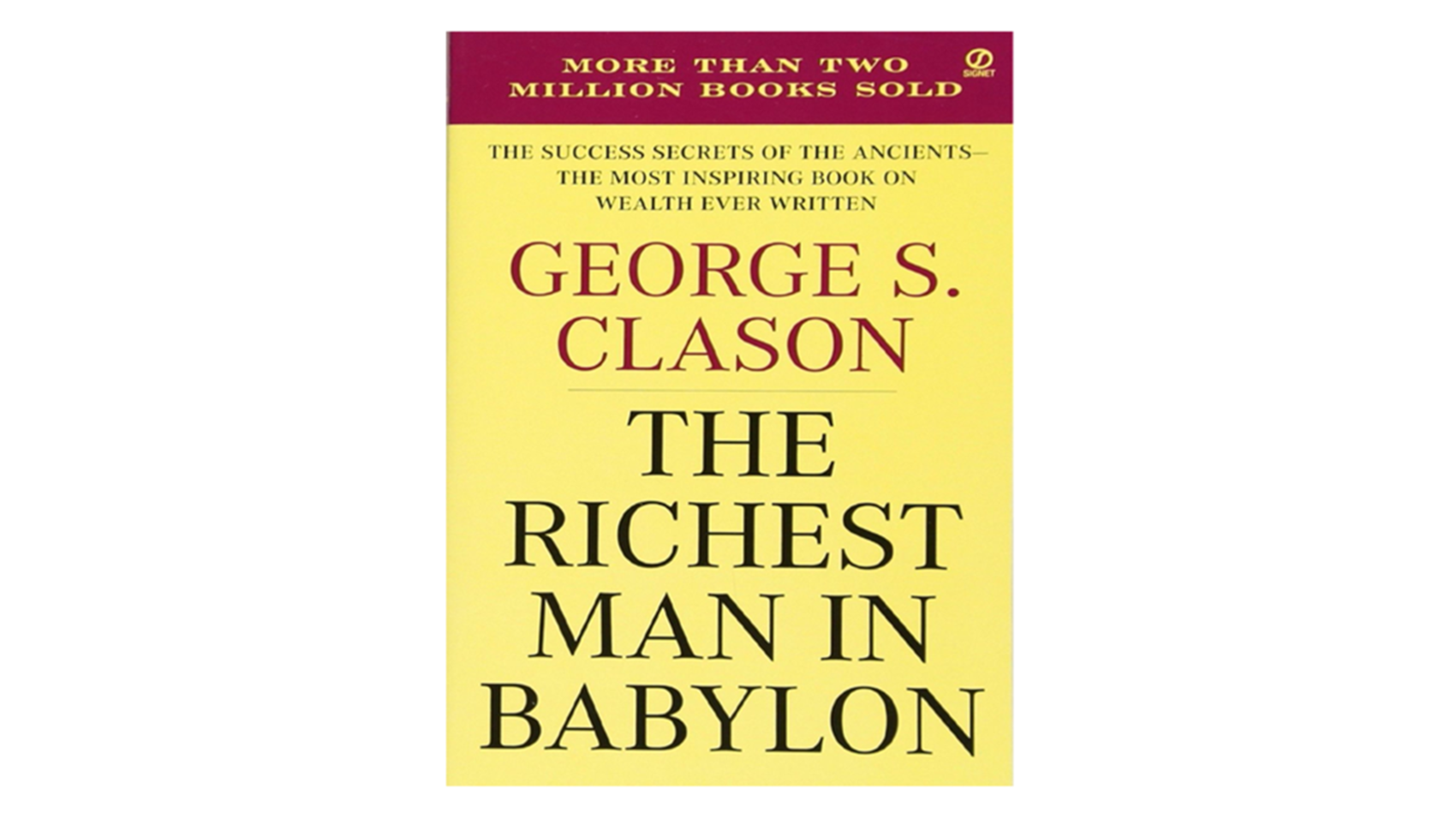Book Summary
“The Richest Man in Babylon” is a classic book of financial advice written by George S. Clason. The book uses parables set in ancient Babylon to illustrate timeless principles for achieving wealth and financial success.
At the core of the book’s teachings are the seven “laws of gold,” which include living within one’s means, seeking wise counsel, investing in profitable opportunities, and avoiding debt. The central story follows a young man named Arkad, who becomes the richest man in Babylon through his application of these laws.
Other characters in the book, including a wealthy merchant and a clever scribe, also offer their own insights and advice on how to build wealth and achieve financial security. The book’s simple and accessible storytelling style makes its lessons easy to understand and remember, and its enduring popularity is a testament to its enduring wisdom.
Overall, “The Richest Man in Babylon” is a classic guide to personal finance and wealth-building, offering practical and timeless advice that is just as relevant today as it was when it was first published.
The Book in 3 Sentences
- The book uses parables set in ancient Babylon to illustrate timeless principles for achieving wealth and financial success, including living within one’s means, seeking wise counsel, investing in profitable opportunities, and avoiding debt.
- The central story follows a young man named Arkad, who becomes the richest man in Babylon through his application of these principles.
- “The Richest Man in Babylon” is a classic guide to personal finance and wealth-building, offering practical and timeless advice that is still relevant today, and its accessible storytelling style makes its lessons easy to understand and remember.
Impressions
Timeless wisdom: Appreciation for the book’s timeless principles for achieving financial success and wealth-building, which are just as relevant today as they were when the book was first published.
Engaging storytelling: The book’s use of parables and its accessible storytelling style has to be praised, it’s an enjoyable and memorable read.
Practical advice: Admiration of the book’s practical and actionable advice on personal finance and wealth-building, and its straightforward approach to these complex topics.
Inspiring: The book’s central story and its emphasis on the importance of hard work, determination, and the pursuit of financial knowledge inspires you to take control of your finances and pursue financial goals.
How I Discovered It
“The Richest Man in Babylon” is a classic book of personal finance advice that has been widely read and recommended for many years. I found this book after it was referred to in a YouTube video.
Who Should Read It?
- Those looking to improve their finances: The book offers practical advice and guidance on how to build wealth, reduce debt, and achieve financial security, making it a valuable resource for anyone looking to improve their financial situation.
- Young adults and students: The book’s accessible storytelling style and simple, straightforward advice make it an ideal choice for young adults and students just starting out in their careers.
- Investors and entrepreneurs: The book’s emphasis on seeking wise counsel, investing in profitable opportunities, and taking calculated risks makes it a valuable resource for anyone looking to start or grow a business or invest in the stock market.
- Anyone interested in personal finance and wealth-building: Whether you’re an experienced investor or just starting out, “The Richest Man in Babylon” offers practical, actionable advice on how to build wealth and achieve financial security, making it an ideal choice for anyone interested in these topics.
How the Book Changed Me
Increased financial awareness: The book’s simple, straightforward advice and engaging storytelling helped me gain a deeper understanding of personal finance and wealth-building, and this increased my financial awareness leading to changes in my financial habits.
Changed spending habits: The book’s emphasis on living within one’s means and avoiding debt lead me to re-evaluate my spending habits and made changes accordingly.
Increased confidence in investing: By emphasizing the importance of seeking wise counsel, investing in profitable opportunities, and taking calculated risks, “The Richest Man in Babylon” helped me feel more confident about investing and building wealth.
Greater financial security: By following the book’s practical advice on personal finance and wealth-building, I felt more secure about my financial future and better equipped to achieve my financial goals.
My Top Quotes
- “A part of all you earn is yours to keep.”
- “It is wise to keep in the forehead a record of money received and spent.”
- “If you would be wealthy, think of saving as well as getting.”
- “A penny saved is a penny earned.”
- “It is easier to keep the new pieces for old than it is to get back the old pieces for new.”
- “The more of wisdom we know, the more we may earn.”
- “Beware of little expenses; a small leak will sink a great ship.”
- “The man who seeks wisdom and finds it will greatly increase his profits.”
- “Gold cometh gladly and in increasing quantity to any man who will put by not less than one-tenth of his earnings to create an estate for his future and that of his family.”
- “The more a man learns, the more he earns.”
Detailed Notes//Key Topics
- Saving and living within one’s means: The book emphasizes the importance of living within one’s means, avoiding debt, and saving a portion of one’s earnings.
- Investing: The book explains how to identify profitable opportunities and make wise investments in order to build wealth over time.
- Seeking wise counsel: The book encourages readers to seek the advice of successful and knowledgeable individuals in order to make informed financial decisions.
- Taking calculated risks: The book encourages readers to take calculated risks in pursuit of financial success, while also emphasizing the importance of being cautious and avoiding foolish or impulsive investments.
- Building an estate: The book explains how to use one’s savings and investments to build an estate that can provide financial security for the future.
- Financial wisdom: The book teaches the principles of wise money management and personal finance, including living within one’s means, seeking wise counsel, investing in profitable opportunities, and taking calculated risks.

